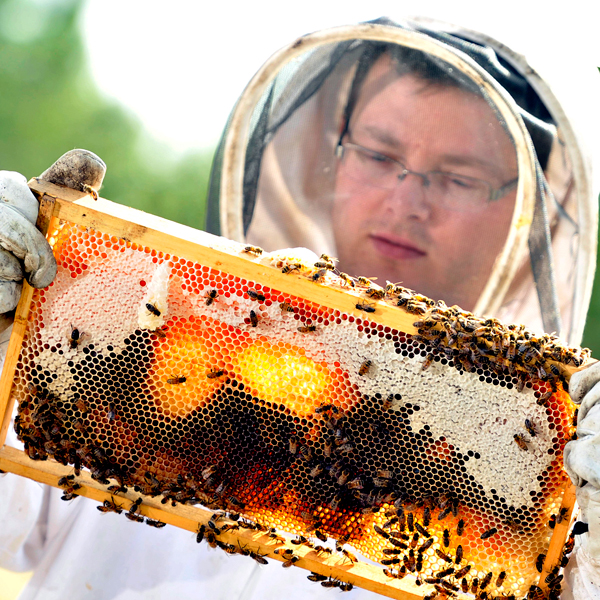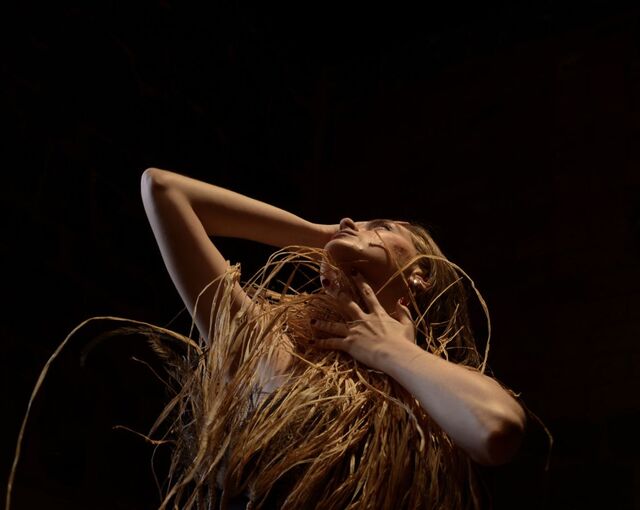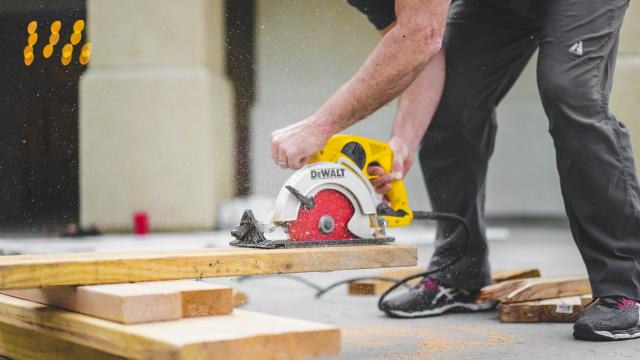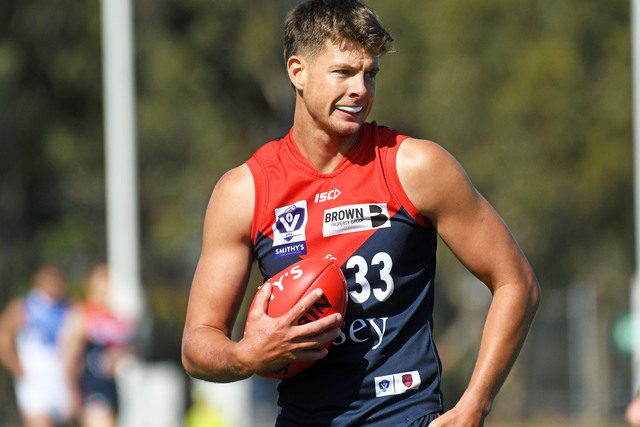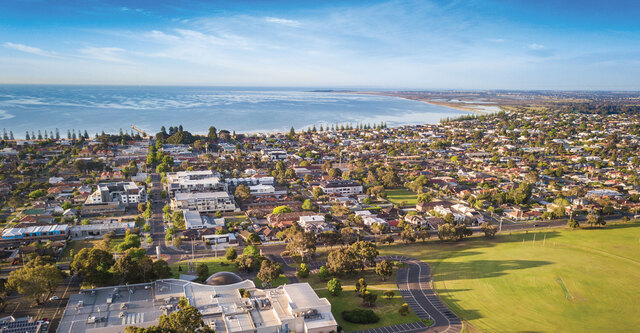Keeping bees for honey is all the buzz in Melbourne’s suburbs as more people follow their quest to become more sustainable, Robert Fedele reports.
Isn’t she gorgeous?’’ whispers Lyndon Fenlon, admiring a new baby girl born just a few days earlier.
Perched on top of a tin shed, overlooking neighbourhood houses and with city buildings in the distance, the 43-year-old beekeeper pauses before trying to explain the situation.
‘‘I tend to talk to my bees. You’ll have to forgive me if I sound a bit strange.’’
The more time spent watching Fenlon and hearing about his passion for bees, the greater do his intricacies appear justifiably normal.
Take for instance his mode of transport, a specially built rickshaw he uses to carry bees and collect honey across Melbourne’s suburbs.
‘‘I realised that if you’re going to be clearly sustainable you’re going to have to cap what you’re doing. That’s my cap right there,’’ says Fenlon, pointing towards the rickshaw he affectionately calls B2, the successor to his two-wheeler.
‘‘Soon, I physically won’t be able to bike to any more sites and keep it safe. That’s fantastic. That means I’ve actually curbed my growth.’’
Reaching the plateau is a good thing, Fenlon explains, because it will allow him to focus on his main goal: teaching beekeeping.
Fenlon established Urban Honey Co seven years ago, adopting a practice which has been happening around the globe for more than a century, city beekeeping.
His vision was to create a network of local honey-producing hubs and turn it into a sustainable business.
The first four years were spent researching, trialling, and building contacts. Fenlon deliberately aligned himself with community groups so he could teach others.
He holds free workshops each month in Brunswick and Maribyrnong.
One of his partnerships is with the Quang Minh Temple in Braybrook, where he tends several hives.
The temple has its own label and sells honey from the site, like the blackberry variety Fenlon says was sourced from flowers budding just after Christmas.
The profits are split equally, with whatever money Fenlon receives pumped back into promoting bees and beekeeping.
Today we are inspecting a nondescript house in Footscray occupied by a bunch of green-loving renters.
The hive, which sticks out like a sore thumb atop a tin shed, is the result of a collected swarm nursed back to health.
The hosts get free honey, as much as they can handle, and the rest is sold. One hive can produce up to 100 kilograms of honey during a season, which runs from spring to autumn.
‘‘The streets are becoming an apiary,’’ Fenlon beams.
‘‘You’re tasting your neighbourhood. What’s great is as you’re walking down the street, you see the flowers in bloom. You know that in just a few weeks you’ll be tasting that.’’
Fenlon grabs a medium-sized backpack and empties its contents.
There’s a tool that looks like a spatula used to open the hive, a brush to scrape bees away, a lightweight veil, and a rusty bee smoker – a device used to calm bees.
He normally uses pine needles from discarded Christmas trees to get the smoker going, but this day he simply rips up bits of untreated cardboard, igniting it with a disposable lighter.
So where did this intriguing, somewhat quirky, fascination begin?
‘‘I always liked bees as a kid,’’ says Fenlon, originally from England.
‘‘Their nature. How they gently went around doing things. And because most kids were scared of them and wanted to try and kill them and I’ve always gone for the underdog in a way.’’
Delving deeper, Fenlon reveals a holistic change in mind and spirit a decade ago as the catalyst behind his obsession.
‘‘I wanted something tangible in my life. Something simple where you can see the process and at the end there’s a result,’’ he explains.
‘‘This is all part of a holistic change for me. It’s about downsizing, being happy with less.
‘‘I forced myself to integrate bees into all aspects of my life. I don’t see them as cash in the bank. I’m living with them. I’m looking after myself and the environment.’’
Fenlon credits the rise of urban beekeeping in Melbourne, which he describes as ‘‘the new black’’, to the worldwide decline of honey bees and people’s desire to become more sustainable.
One of the newcomers to the game is 27-year-old Flemington resident David Perry.
Completing a PhD in neuroscience and engineering, Perry has added beekeeping to the list of his hobbies out of left field.
At a conference a few years ago he heard a talk analysing how bees navigate the world and communicate with each other. It fascinated him.
‘‘You kind of buy honey as a commodity and you never really appreciate that there’s actually more than one kind of honey.
‘‘It’s interesting. I’ve got a lot of silly hobbies like this and I thought I’ll take it the next step.’’
Initially, Perry found it difficult to find out more. Then a few months ago he contacted Fenlon, who told him to get a hive and he’d fill it up with bees for him.
The pair met on the edge of Footscray aboard their cargo bikes. The exchange was clinical. Perry took the box of bees and rode back home, popping the hive in his backyard in the middle of knee-high grass.
‘‘The experienced people can sort of just go and find a swarm that’s turned up somewhere and they just get a box and take it in there. But I was told by a friend that it’s good to get an established hive from someone who knows what they’re doing.’’
Perry’s backyard is filled with fruit trees, chickens, and Georgette, a trusty duck who follows him everywhere.
He wears a full suit when inspecting the hive and has yet to be stung, declaring bees as docile for the most part.
‘‘It’s become a cool thing now,’’ he says of beekeeping. ‘‘You’ll have chooks and a vegie garden and you’ll have a beehive as well. It will be commonplace.’’
On the outskirts of Keilor, microbiologist Daniel Palm is also looking to the future, though on a much grander scale.
Palm’s interest in bees dates back to his childhood, but resurfaced only two years ago when his father-in-law put in a vegie patch at his Taylors Lakes home and said how he’d love to get a beehive.
‘‘I got my first hive when I was 13,’’ says Palm, who was raised on a country property.
‘‘As a 13-year-old you don’t have a huge amount of cashflow so I didn’t have the money to buy all the gear that I needed to work the hive effectively. The hive pretty much sat in my backyard until it went feral and it disappeared.’’
The hive never made it to his father-in-law but Palm’s interest was pricked.
One hive quickly grew to 30, and a blossoming business on the side called Dan the BeeMan.
His services include removing hives for people and selling hives and equipment to wannabe beekeepers.
He’ll put the swarm in a box, provide the equipment, and train and mentor you.
There’s also several pollination contracts where he sets up a hive to help farmers, like a recent canola crop in Clarkefield.
‘‘I thought that I’d test the water and see what sort of response would come and it’s just absolutely chaotic.’’
Plonked on an empty hive in the middle of a friend’s paddock in Keilor, which acts as his main base, Palm talks up the business of bees with animated intensity.
The 32-year-old has hives in Keilor and Bendigo, creating batches such as yellowgum, red ironbark, and wildflower.
Palm is stockpiling his honey with the intention of making his own label and selling it locally. Right now he has about 2000 kilograms stored in drums in his garage.
‘‘Eventually I hope to get to a stage where it’s supplementing my income. The way that it’s growing there is a demand for it and there is an interest in it and it’s something I enjoy. Later on in life it could very well be something that I do.’’
Palm believes the growth in urban beekeeping is a result of many factors.
He says people are thinking more about where their food comes from, coupled with a greater appreciation of environmental issues such as drought and the impact of locust plagues.
‘‘I remember when I was a little kid you’d walk through the paddocks and you’d see the little dandelions and there’d be bees everywhere. Nowadays you’re lucky to see a couple because bees are dwindling.’’
As evening digs its feet in, Lyndon Fenlon pedals his way home to Footscray after a nightly routine which involves extracting honey and inspecting hives.
His day was spent in a ‘‘soul-destroying job’’ where he analyses utility bills.
Even if he never manages to make a living from beekeeping, he says he won’t give it up.
‘‘I have seven years of training to live on not very much at all and be happy with what I’ve got, if it disappears from the face of the earth, in terms of being popular, the bees will still be there and I’d still be with them. And that’s it.’’

